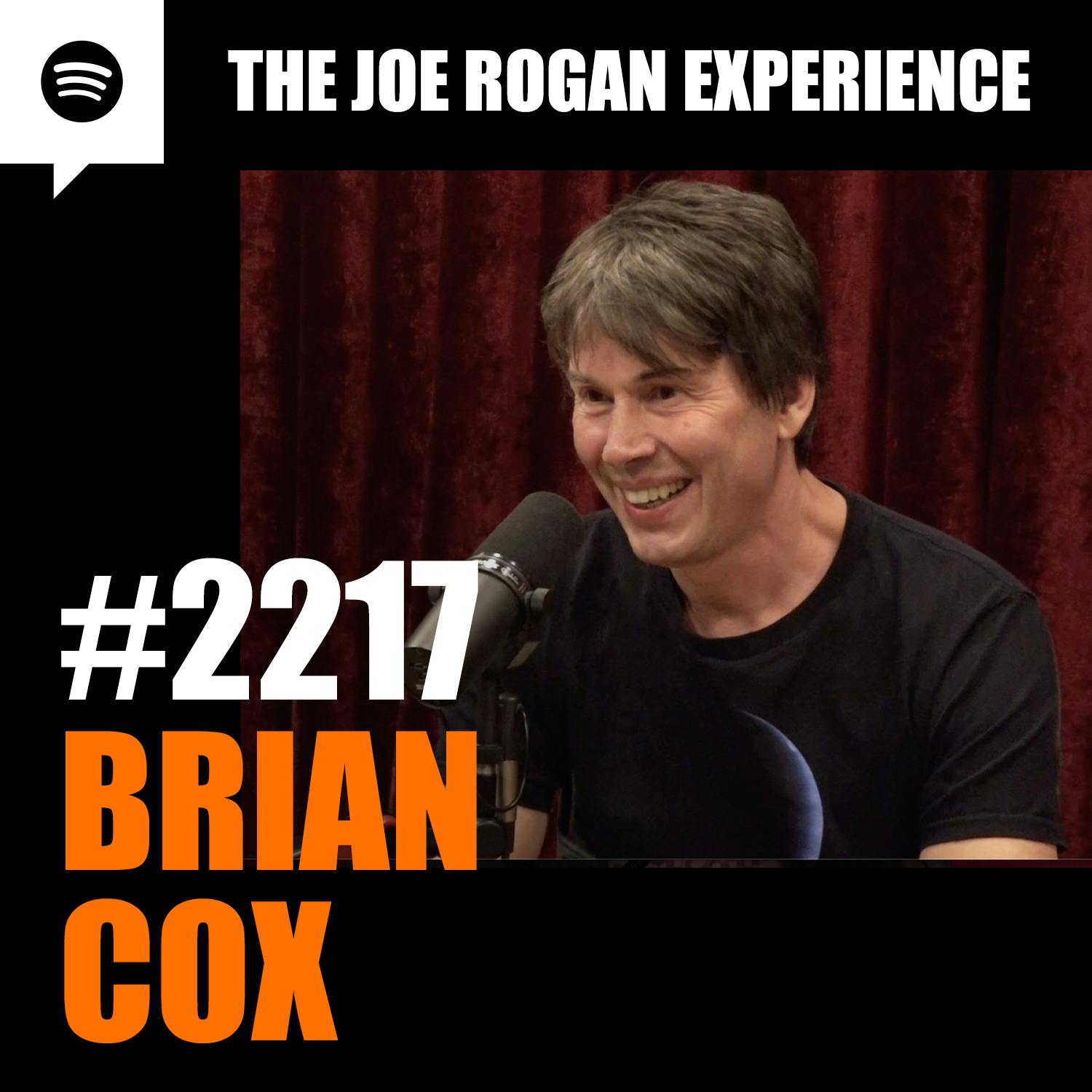 #2170 - Max Lugavere
#2170 - Max Lugavere
Digest
The podcast delves into the importance of exercise for brain health, highlighting the benefits of resistance training and cardiovascular exercise for reducing anxiety and improving mental well-being. The discussion then shifts to the dangers of environmental toxins, specifically trichloroethylene found in tap water and forever chemicals in dishwasher pods, emphasizing the need for water filtration and reducing exposure to these compounds. The podcast explores the potential benefits of sauna use for reducing Alzheimer's disease risk, as well as the role of ketone supplementation, particularly MCT oil and exogenous ketones, in supporting brain energy needs. The episode concludes with a discussion on the importance of adopting healthy habits, such as prioritizing whole foods, incorporating exercise snacks, and practicing mindfulness with food consumption, to promote overall health and well-being.
Outlines

Introduction and Documentary Announcement
This Chapter introduces the guest and his new documentary, "Little Empty Boxes," a dementia prevention documentary that follows his mother's journey with Louie Body Dementia. He emphasizes the importance of the project and its focus on the science of dementia prevention.

The Fraudulent Amyloid Hypothesis
This Chapter delves into the fraudulent study that fueled the amyloid hypothesis for Alzheimer's disease. The study, published in Nature in 2006, claimed to identify a variant of amyloid beta that linked plaque formation to cognitive dysfunction, but was later found to have fabricated images. The discussion highlights the impact of this fraud on research and patient hope.

The Importance of Prevention
This Chapter emphasizes the importance of prevention in addressing Alzheimer's disease, as the condition often begins decades before symptoms appear. The discussion highlights the need to focus on modifiable risk factors, including diet, exercise, and environmental exposures.

Risk Factors for Alzheimer's Disease
This Chapter explores the various risk factors for Alzheimer's disease, including non-modifiable factors like age, gender, and genetics, and modifiable factors like obesity, hypertension, and type 2 diabetes. The discussion introduces the concept of "type 3 diabetes" as a potential link between Alzheimer's disease and insulin resistance.

Personal Journey and Early Symptoms
This Chapter recounts the guest's personal journey in discovering his mother's dementia and the challenges of navigating the medical system. He describes the early symptoms, the initial misdiagnosis, and the emotional impact of the diagnosis.

Environmental Toxins and Neurodegeneration
This Chapter explores the role of environmental toxins, such as herbicides and pesticides, in neurodegeneration, particularly in relation to Parkinson's disease. The discussion highlights the potential link between exposure to paraquat and Parkinson's disease and the importance of reducing exposure to these chemicals.

Nicotine and Parkinson's Disease
This Chapter examines the surprising inverse relationship between nicotine use and Parkinson's disease. The discussion explores the potential protective effects of nicotine on the brain and its role in reducing neuroinflammation and oxidative stress.

Dietary Factors and Neurodegeneration
This Chapter delves into the role of diet in neurodegeneration, focusing on the impact of ultra-processed foods and the importance of consuming whole foods. The discussion highlights the potential benefits of a protein-rich diet, the importance of gut health, and the role of dietary fiber in detoxification.

Gut Health and Antibiotics
This Chapter explores the impact of antibiotics on gut health and the challenges of restoring a healthy gut microbiome after antibiotic use. The discussion highlights the potential benefits of fermented foods and the importance of a balanced diet in supporting gut bacterial diversity.

The Carnivore Diet and Protein
This Chapter examines the carnivore diet and its potential benefits, including improved energy levels and cognitive function. The discussion emphasizes the importance of prioritizing protein in the diet and the potential downsides of a vegan diet.

The Demonization of Saturated Fat and Red Meat
This Chapter challenges the demonization of saturated fat and red meat, arguing that these foods are highly nutrient-dense and have been unfairly targeted. The discussion highlights the importance of consuming whole foods and the need to reconsider the role of red meat in a healthy diet.

Exercise and Brain Health
This Chapter emphasizes the importance of exercise for brain health, highlighting the benefits of resistance training and cardiovascular exercise for reducing anxiety and improving mental well-being. The discussion explores the role of exercise in preventing neurodegeneration and improving quality of life for individuals with dementia.

Environmental Toxins and Water Filtration
This Chapter delves into the dangers of environmental toxins, specifically trichloroethylene found in tap water and forever chemicals in dishwasher pods. The discussion highlights the importance of water filtration, particularly using charcoal filters and reverse osmosis purifiers, to reduce exposure to these harmful compounds.

Precautionary Principle and Reducing Exposure
This Chapter emphasizes the importance of adopting a precautionary principle when it comes to environmental toxins and endocrine disruptors. The discussion highlights the non-monotonic dose response of these compounds, meaning that low doses can still have harmful effects, and the need to reduce exposure whenever possible.

Air Pollution and Brain Health
This Chapter explores the link between air pollution and brain health, highlighting the dangers of fine particulate matter (PM 2.5) and its association with Alzheimer's disease pathology, even in young children. The discussion also touches on the surprising finding that electric cars, particularly those without regenerative braking, can produce more brake dust than gas-powered cars.

Documentary Focus and Dementia Prevention
This Chapter discusses the guest's documentary, "Little Empty Boxes," and its focus on dementia prevention. The discussion highlights the importance of unraveling misinformation about diet and lifestyle choices, and the need to prioritize whole foods, exercise, and reducing exposure to environmental toxins to reduce the risk of developing dementia.

Exercise and Dementia
This Chapter explores the role of exercise in mitigating dementia symptoms and slowing its progression. The discussion highlights the benefits of exercise for mental health and the evidence suggesting that exercise can improve cognitive function and quality of life for individuals with dementia.

Medications and Alzheimer's Disease
This Chapter discusses the potential of medications, particularly semagglutide and intranasal insulin, in treating Alzheimer's disease. The discussion highlights the use of semagglutide for type 2 diabetes and weight loss, and its potential to reduce the risk of developing Alzheimer's disease. The chapter also explores the role of intranasal insulin in improving cognitive function in patients with Alzheimer's disease.

Sauna Use and Alzheimer's Disease Prevention
This Chapter explores the potential benefits of sauna use for reducing Alzheimer's disease risk. The discussion highlights the research from the University of Finland showing a strong association between regular sauna use and a reduced risk of Alzheimer's disease, stroke, hypertension, and cardiovascular disease.

Adopting Healthy Habits
This Chapter provides practical advice for adopting healthy habits to improve overall health and well-being. The discussion emphasizes the importance of starting with one new habit at a time, prioritizing whole foods, incorporating exercise snacks, and practicing mindfulness with food consumption.

Exercise Snacking and Strength Training
This Chapter explores the concept of exercise snacking, brief intense bursts of activity throughout the day, and its effectiveness in mitigating the health risks associated with sedentary lifestyles. The discussion also delves into the strength training philosophy of Pavel Totseline, emphasizing the importance of training smarter, not harder, and avoiding failure on every set.

Stretch-Mediated Hypertrophy
This Chapter discusses the concept of stretch-mediated hypertrophy, a strength training technique that emphasizes the stretched position of the muscle under load. The discussion highlights the potential benefits of this technique for promoting muscle growth and strength gains.

Closing Remarks and Documentary Information
This Chapter concludes the podcast with closing remarks from the guest, emphasizing the importance of sharing evidence-based research in a practical and accessible way. The discussion highlights the limitations of nutrition science and the need for a more authentic and actionable approach to health and well-being. The guest also promotes his documentary, "Little Empty Boxes," and his podcast, "The Genius Life."
Keywords
Alzheimer's disease
A progressive neurodegenerative disease that causes memory loss and cognitive decline. It is the most common form of dementia, affecting millions of people worldwide. The disease is characterized by the accumulation of amyloid plaques and tau tangles in the brain, leading to neuronal dysfunction and death.
Amyloid hypothesis
A prevailing theory in Alzheimer's disease research that suggests that the accumulation of amyloid beta protein in the brain is the primary cause of the disease. The hypothesis has been challenged in recent years due to the failure of amyloid-targeting drugs and the discovery of fraudulent research.
Dementia prevention
Strategies aimed at reducing the risk of developing dementia, including Alzheimer's disease. Prevention efforts focus on modifiable risk factors such as diet, exercise, and environmental exposures. The goal is to promote brain health and delay or prevent the onset of cognitive decline.
Environmental toxins
Chemicals and substances in the environment that can have harmful effects on human health, including neurodegeneration. Examples include herbicides, pesticides, and industrial chemicals. Exposure to these toxins can contribute to the development of Alzheimer's disease, Parkinson's disease, and other neurological disorders.
Ultra-processed foods
Foods that have been extensively processed and contain added ingredients, such as sugars, fats, and artificial flavors. These foods are often high in calories, low in nutrients, and can contribute to chronic diseases, including obesity, diabetes, and heart disease. They are also a major source of environmental toxins.
Gut health
The state of the microbiome, the trillions of bacteria that live in the digestive tract. A healthy gut microbiome is essential for digestion, immunity, and overall health. Factors that can affect gut health include diet, stress, and antibiotic use.
Nicotine
A stimulant found in tobacco products. While smoking is harmful to health, nicotine has been shown to have some potential benefits for the brain, including reducing neuroinflammation and protecting against Parkinson's disease. However, nicotine is highly addictive and should be used with caution.
Cotinine
The primary metabolite of nicotine in the body. Cotinine has a longer half-life than nicotine and has been shown to have cognitive-enhancing effects and may even play a role in fear extinction. However, more research is needed to fully understand its effects.
Louie Body Dementia
A type of dementia that is characterized by the presence of Lewy bodies, abnormal protein deposits in the brain. It is similar to both Parkinson's disease and Alzheimer's disease, and can cause a range of symptoms, including cognitive decline, movement disorders, and hallucinations.
Paraquat
A herbicide that is banned in China but still used in the United States. Exposure to paraquat has been linked to an increased risk of Parkinson's disease. The chemical is highly toxic and has been used in suicides.
Trichloroethylene
A volatile organic compound that has been linked to Parkinsonism. It was used as an anesthetic for pregnant women, to decaffeinate coffee, and to extract vegetable oils. It readily infiltrates groundwater, and about 30% of groundwater in the United States is still contaminated with this compound.
Forever chemicals
A group of synthetic chemicals that are highly persistent in the environment and can accumulate in the body. They are known as PFAS (per- and polyfluoroalkyl substances) and have been linked to various health problems, including cancer, immune deficiency, and reproductive issues. They are found in many consumer products, including non-stick cookware, food packaging, and firefighting foam.
Ketone bodies
Molecules produced by the liver when the body is in a state of ketosis, typically due to low carbohydrate intake. Ketone bodies can be used as an alternative fuel source by the brain, particularly in individuals with Alzheimer's disease, where glucose metabolism is impaired. They can be produced through dietary changes, such as the ketogenic diet, or through supplementation with exogenous ketones.
Hormesis
A biological phenomenon where exposure to a low dose of a stressor, such as exercise, heat, or certain chemicals, can have a beneficial effect on the organism. This is a non-monotonic dose response, meaning that the effect is not linear and can be beneficial at low doses but harmful at high doses.
Exercise snacking
A strategy for incorporating brief, intense bursts of physical activity throughout the day, even during sedentary periods. This can help mitigate the health risks associated with prolonged sitting and improve overall health and well-being.
Stretch-mediated hypertrophy
A strength training technique that emphasizes the stretched position of the muscle under load. This can promote muscle growth and strength gains by maximizing the tension on the muscle fibers during the eccentric phase of the lift.
Type 3 diabetes
A term coined by Dr. Delamonte to describe the link between insulin resistance and Alzheimer's disease. It is characterized by impaired glucose metabolism in the brain, similar to type 2 diabetes, but with additional neurological complications.
Standard American Diet (SAD)
A dietary pattern that is high in processed foods, saturated fats, sugar, and salt, and low in fruits, vegetables, and whole grains. It is associated with an increased risk of chronic diseases, including obesity, diabetes, heart disease, and cancer.
Fine particulate matter (PM 2.5)
Tiny particles in the air that are less than 2.5 micrometers in diameter. They can penetrate deep into the lungs and bloodstream, causing respiratory and cardiovascular problems. Exposure to PM 2.5 has been linked to an increased risk of Alzheimer's disease, Parkinson's disease, and other neurological disorders.
Regenerative braking
A technology used in electric vehicles that converts the vehicle's kinetic energy into electrical energy, which is then used to recharge the battery. This reduces the need for traditional braking systems and can improve fuel efficiency.
The Genius Life
A podcast hosted by Max Lugavere, a nutrition and wellness expert, that focuses on evidence-based research and practical strategies for improving brain health, longevity, and overall well-being.
Little Empty Boxes
A documentary film directed by Max Lugavere that follows his mother's journey with Louie Body Dementia. The film explores the science of dementia prevention, highlighting the importance of lifestyle choices, diet, and reducing exposure to environmental toxins.
Q&A
What are the benefits of exercise for brain health?
Exercise, particularly resistance training and cardiovascular exercise, can reduce anxiety, improve mental well-being, and potentially slow the progression of neurodegenerative diseases like Alzheimer's and Parkinson's.
What are some environmental toxins that can be harmful to brain health?
Trichloroethylene, found in tap water, and forever chemicals, found in dishwasher pods, are examples of environmental toxins that can contribute to neurodegeneration. It's important to filter your water and reduce exposure to these compounds.
What are the potential benefits of sauna use for brain health?
Research suggests that regular sauna use is associated with a reduced risk of Alzheimer's disease, stroke, hypertension, and cardiovascular disease. Saunas provide a form of stationary cardio and can help release toxins through sweat.
What is the role of ketone bodies in Alzheimer's disease?
The brain of someone with Alzheimer's disease may have impaired glucose metabolism, making ketone bodies a potential alternative fuel source. MCT oil and exogenous ketones can be used to supplement the brain's energy needs.
What are some practical tips for adopting healthy habits?
Start with one new habit at a time, prioritize whole foods, incorporate exercise snacks, and practice mindfulness with food consumption. These small changes can have a significant impact on your overall health and well-being.
What is the strength training philosophy of Pavel Totseline?
Totseline emphasizes training smarter, not harder, and avoiding failure on every set. He believes that strength is a skill that should be practiced without fatigue, allowing for better recovery and long-term gains.
What is stretch-mediated hypertrophy?
This strength training technique emphasizes the stretched position of the muscle under load, potentially maximizing tension on the muscle fibers and promoting muscle growth.
What is type 3 diabetes and how is it related to Alzheimer's disease?
Type 3 diabetes is a term used to describe the link between insulin resistance and Alzheimer's disease. It suggests that impaired glucose metabolism in the brain, similar to type 2 diabetes, can contribute to the development of Alzheimer's.
What is the importance of reducing exposure to fine particulate matter (PM 2.5)?
PM 2.5 is a type of air pollution that can penetrate deep into the lungs and bloodstream, causing respiratory and cardiovascular problems. Exposure to PM 2.5 has been linked to an increased risk of Alzheimer's disease and other neurological disorders.
What is regenerative braking and how does it affect brake dust production in electric cars?
Regenerative braking converts the vehicle's kinetic energy into electrical energy, reducing the need for traditional braking systems. Electric cars without regenerative braking can produce more brake dust than gas-powered cars.
Show Notes
Max Lugavere is a filmmaker, health and science journalist, author, and host of The Genius Life podcast. His debut film Little Empty Boxes is out now.
Learn more about your ad choices. Visit podcastchoices.com/adchoices


























The chapter "The Demonization of Saturated Fat and Red Meat" challenges the unfair negative perception of these foods, emphasizing their high nutrient density. It argues that red meat and saturated fat have been unjustly targeted and stresses the importance of whole foods in maintaining a healthy diet. For more assistance, you can explore a professional book review writing service at EssayShark.
oh no meat only plus artificial processed vitamins are not the answer??? veges r actually helpfully???? watch rogan in surprise mode!
As a student managing a heavy workload, https://essaypro.app/ app has been a game-changer for my essay writing needs. The app's intuitive design makes it easy to draft, edit, and finalize essays on the go. Features like the citation generator and grammar checker help ensure my papers are polished and error-free. Whether I’m brainstorming ideas or doing a final proofread, this app provides the tools I need to produce high-quality essays efficiently.